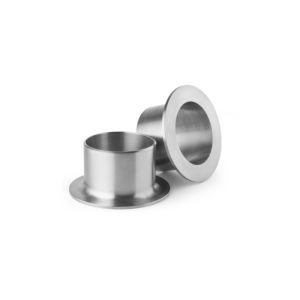Titanium Grade 2
Titanium Grade 2 is a commercially pure titanium known for its excellent corrosion resistance, good formability, and high strength-to-weight ratio. It adheres to the specifications of ASTM B348, 3.7035, and UNS R50400, making it a versatile choice for various industrial applications. This grade is particularly valued for its outstanding resistance to both oxidizing and mildly reducing environments, as well as its superior weldability and ductility.
It is widely used in industries requiring reliable performance in challenging conditions. Its biocompatibility also makes it suitable for medical applications such as implants and surgical instruments. Whether for aerospace, marine, or industrial uses, Titanium Grade 2 offers a combination of strength, corrosion resistance, and lightweight properties that are unmatched by other materials.
Key Features
- Corrosion Resistance: Exceptional, especially in marine and chemical environments
- Strength-to-Weight Ratio: High, ideal for weight-sensitive applications
- Formability: Excellent, can be easily formed into various shapes
Applications
- Chemical processing
- Aerospace
- Marine
- Medical implants
- Architectural components
Chemical Composition
| Element |
Content |
| Titanium (Ti) |
Balance |
| Iron (Fe) |
Max. 0.30% |
| Oxygen (O) |
Max. 0.25% |
| Carbon (C) |
Max. 0.08% |
| Nitrogen (N) |
Max. 0.03% |
| Hydrogen (H) |
Max. 0.015% |
Mechanical Properties
| Property |
Value |
| Tensile Strength |
Min. 345 MPa (50 ksi) |
| Yield Strength (0.2% offset) |
Min. 275 MPa (40 ksi) |
| Elongation |
Min. 20% |
| Reduction of Area |
Min. 30% |
Physical Properties
| Property |
Value |
| Density |
Approximately 4.51 g/cm³ |
| Modulus of Elasticity |
105 GPa |
| Melting Point |
Around 1665°C (3030°F) |
| Hardness |
Approximately 160 HB (Brinell Hardness) |
Key Characteristics
- Corrosion Resistance: Excellent in seawater, oxidizing acids and alkaline solutions as chlorine gas and most organic acids.
- Formability: Good ductility, making it suitable for forming into various shapes and sizes, including round bars.
- Weldability: Can be welded using conventional techniques, making it versatile for fabrication.
- Biocompatibility: Non-toxic and biocompatible, often used in medical implants and devices.
Applications
- Aerospace: Aircraft frames, engine components, and hydraulic systems.
- Marine: Shipbuilding, offshore structures, and desalination plants.
- Chemical Processing: Heat exchangers, reactors, and piping systems.
- Medical: Implants, surgical instruments, and prosthetics.
- Industrial: Power generation, automotive, and petrochemical industries.
Our inventory of Titanium Grade 2 Materials








